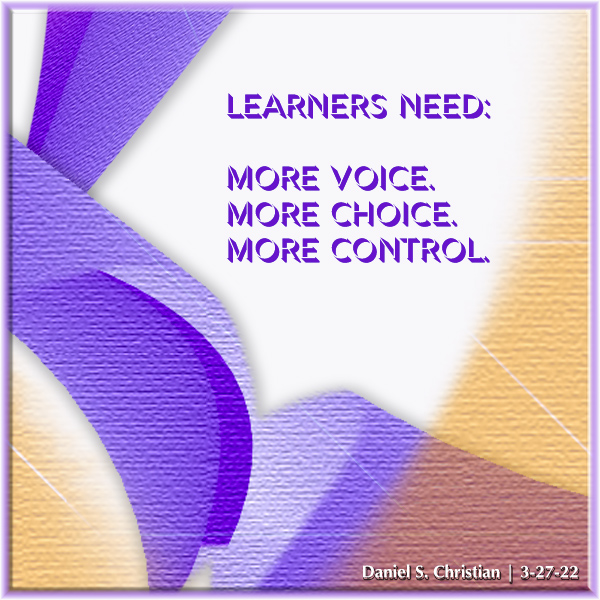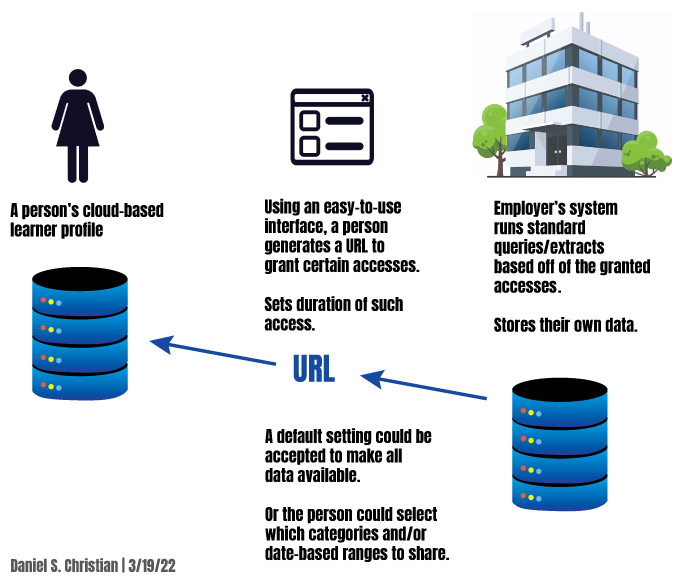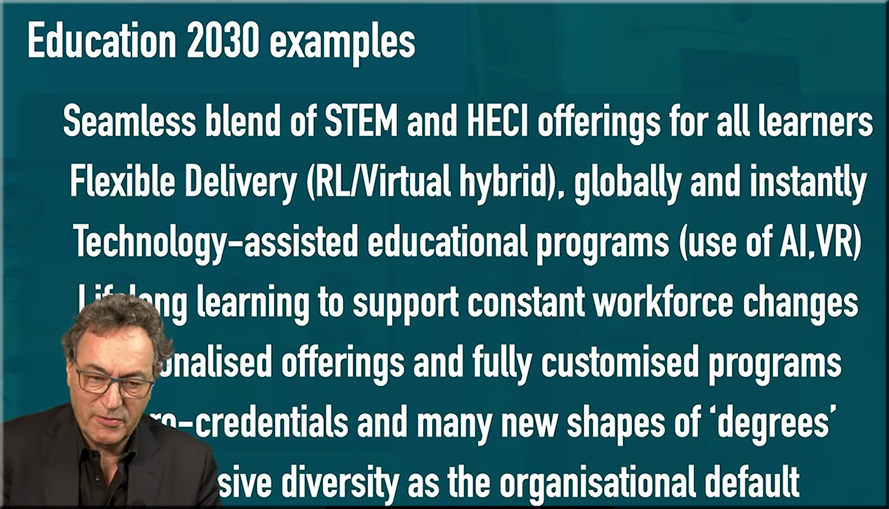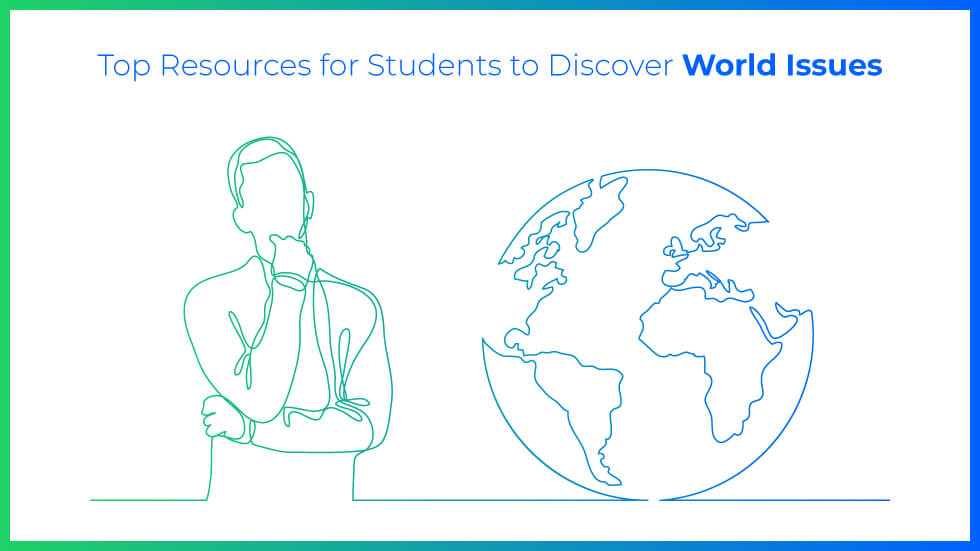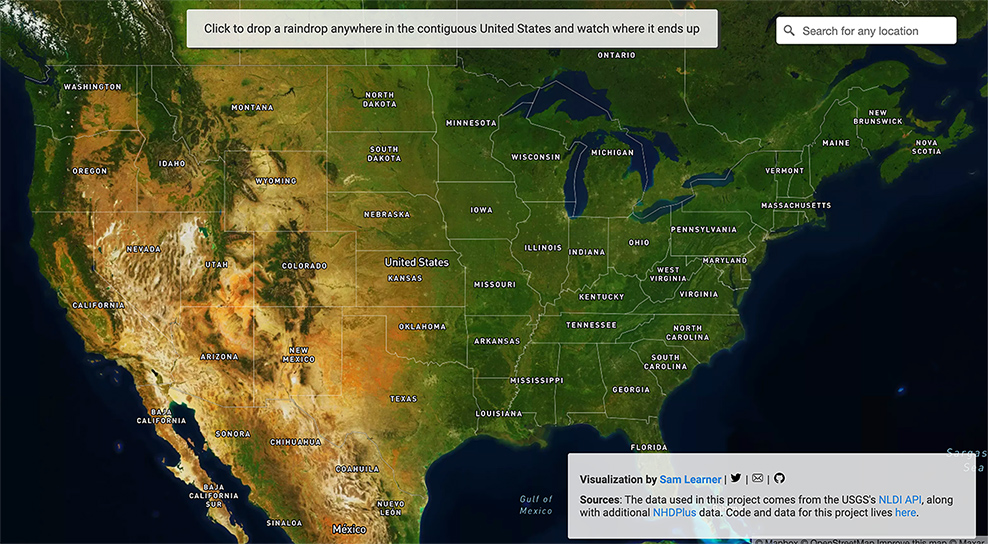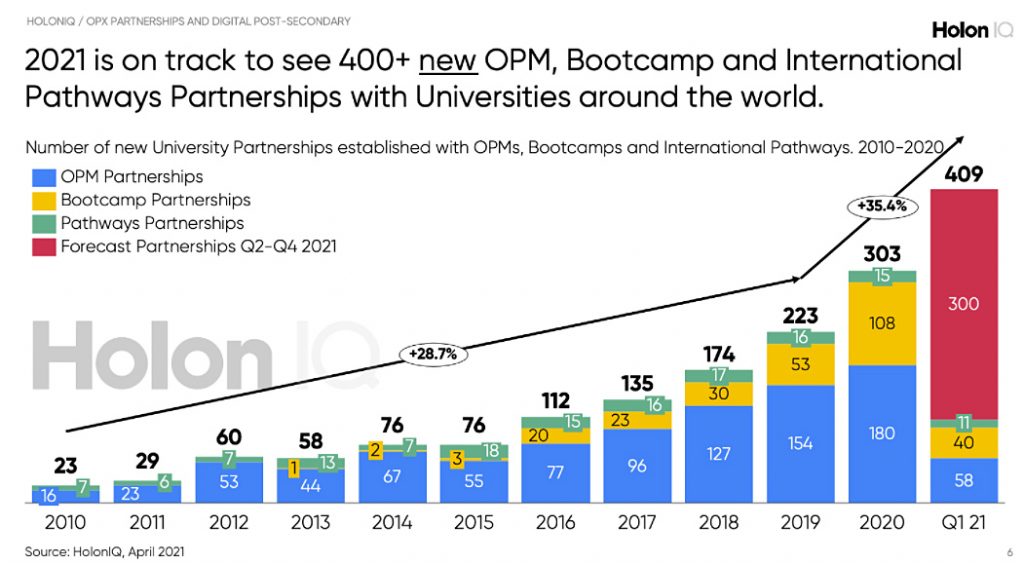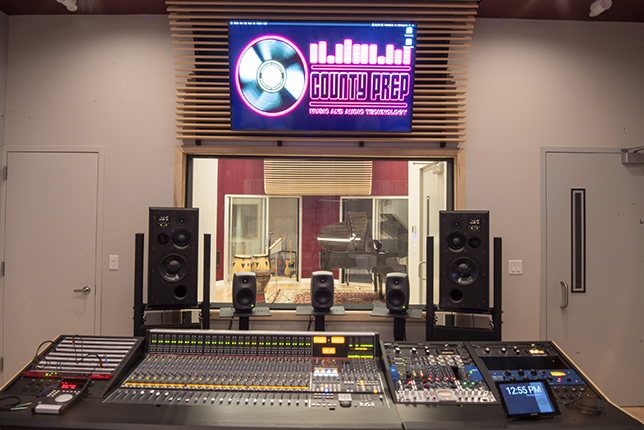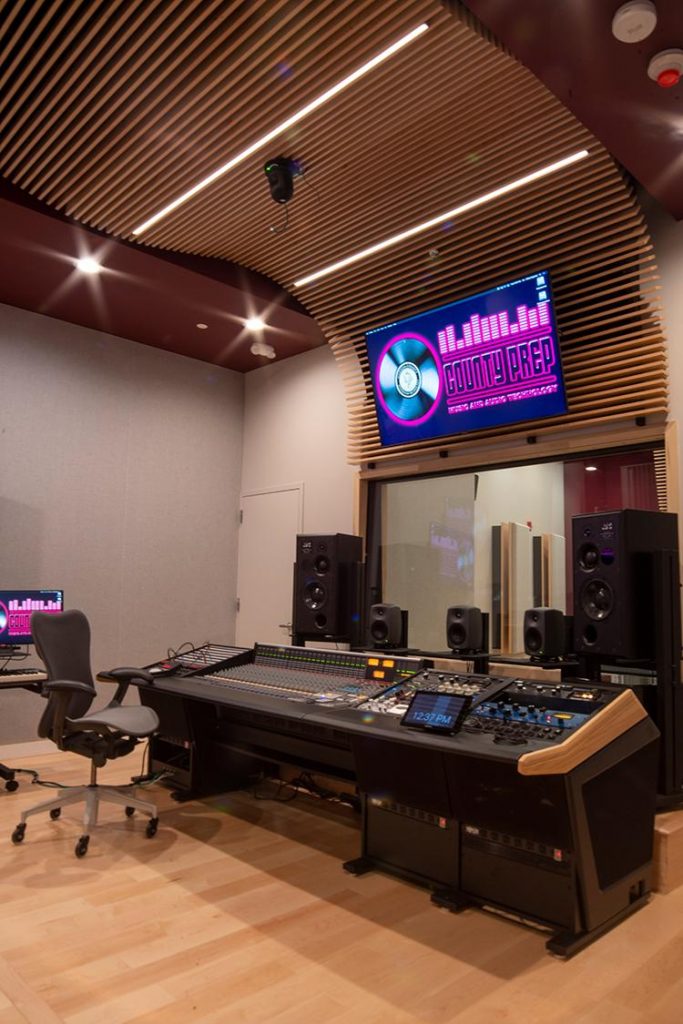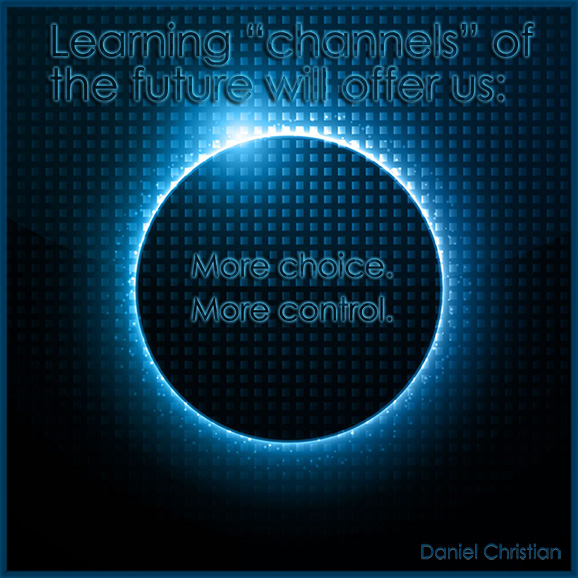From DSC:
The items below made me reflect on the need to practice some serious design thinking to rethink/redesign the cradle-to-grave learning ecosystems out there.
Real World Learning in Action — from gettingsmart.com by Shawnee Caruthers
Key Points
- The Real World Learning initiative was created to address a simple, but equally complex challenge: How do you prepare students for life after high school?
- The traditional, go to classes, earn some credits, participate in some activities and earn a diploma wasn’t working, at least not equitably.
Creating a new high school experience starts with innovative thinking and advocates willing to say yes. As a result of collaborations, visiting best practice sites and numerous convenings, the Kansas City region is now a hub for pathways, wall-to-wall academies, microschools, innovation academies, student-run businesses, strong client-connected project examples and more. Educational stakeholders can now go across state lines to see future-forward thinking for students.
Also relevant/see:
Framing and Designing the HOW — from gettingsmart.com by Rebecca Midles
Key Points (emphasis DSC):
- The referenced circle graphic is intended to guide how we talk about our work as a system, internal and externally.
- It also is about understanding our why on a personal level.
- Learning systems are specifically designed to get the results they have, and to change results, we have to redesign the system.
Also relevant/see:
Fewer People Are Getting Teacher Degrees. Prep Programs Sound the Alarm — from edweek.org by Madeline Wil
Excerpt (emphasis DSC):
As teacher dissatisfaction rates rise and concerns about teacher shortages intensify, colleges of education are sounding the alarm: Enrollment has been steadily declining for the past decade, and the pandemic has likely made things worse.
Smaller and Restructured: How the Pandemic Is Changing the Higher Education IT Workforce — from educause.edu by Jenay Robert
Excerpt:
Several prominent themes emerged from the analysis of these responses and are supported by other recent EDUCAUSE research:
- Though most respondents reported a reduction in force, some were able to justify adding new positions to their units in 2021, primarily to meet new institutional needs.
- Budget cuts were the main cause of reductions in force.
- Work factors such as flexible, remote work options and competitive salaries are playing a central role in attrition and recruitment.
- Increased workloads and personal stressors related to the pandemic have resulted in widespread burnout among staff.
- IT units have plans to reorganize in 2022 to become more agile and efficient and to respond to the evolving needs of their organizations.
Allan: With $175G Grants, Accelerate ED Looks to Better Link K-12, College & Work — from the74million.org by Sara Allan
Excerpt:
Today, most states require high school students to complete a set of defined courses, assessments and experiences in order to graduate on a career-ready pathway. However, the number of schools that fully embrace coherent programs of study that connect K-12, higher education and employment remains frustratingly small.
.
What if every high school student had the chance to take an additional year of courses related to their interests and earn enough credits to complete their associate degree one year after high school while gaining valuable experience and career preparation—at little to no cost?
From DSC:
The above quote is the type of “What if…” question/thinking that we need to redesign our cradle-to-grave/lifelong learning ecosystems.
A relevant addendum on 6/1/22:
Design Thinking approach is not linear – it’s flexible and fluid, looping back and around and in on itself#DesignThinking #loop #empathy #innovation pic.twitter.com/HYB0TbkSqj
— Denis Vukosav (@DenisVukosav) May 26, 2022









